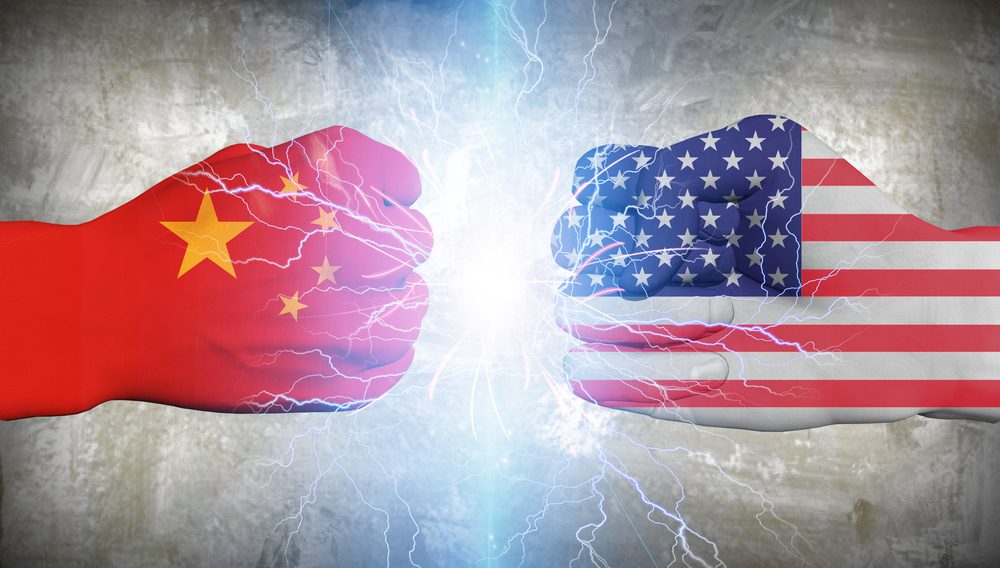Pivot to Asia? We’ve Been Here Before and It Doesn’t Work

A recent NATO report broke new ground by fingering China as a military threat to Europe for the first time. At first glance, this would seem to indicate that Europe has been listening to Washington’s repeated warnings and has finally come around to the American point of view on the salience of “great power competition” that recognizes both Moscow and Beijing as dangers, with the latter perhaps constituting a more ominous threat.
Next year, both the French and British navies are planning major naval exercises, together with the U.S. and Japan, in the Western Pacific, namely in maritime domains proximate to China. Beijing’s “wolf-warrior” diplomats are sure to denounce these exercises, as well as the NATO report. Given the sordid history of European gun-boat diplomacy in the Far East, churlish Chinese diplomats will have plenty to work with. These undertakings by London and Paris—and NATO as a whole—are quite clearly being done at the behest of Washington.
American strategists should ponder whether it will be a benefit to be associated with a return of European military forces to East Asia. After all, the Vietnam War resulted in part from Washington’s failure to appreciate the significance and power of Asian nationalism as inspired by the predations of European imperialism. It is now well known that the Vietnamese communist leader Ho Chi Minh even reached out to President Truman in a bid to seek American support in ridding Vietnam of its cruel French overlords. More than 60,000 Americans died with countless more wounded because Ho’s overture went ignored in Washington.
Indeed, few seem to have reflected on the fact that Hong Kong itself is the colonial legacy of British aggression against China during the Opium War. Those remonstrating against Chinese abuses in Hong Kong may want to consider the assessment of America’s first ambassador to China, Caleb Cushing, regarding London’s prosecution of that conflict: “God forbid that I should entertain the idea of co‐operating with the British Government in the…base cupidity and violence, and high handed infraction of all law, human and divine, which have characterized the operations of the British…in the seas of China.”
Americans are not in a position to wag their finger at anyone on this score, especially given their own ignoble efforts at colonization in the Philippines some decades later. However, just a little historical knowledge could help Americans understand that the legacy of British colonialism in southern China, namely Hong Kong, should emphatically not be at the center of contemporary U.S.-China relations. Rabble-rousers wielding Molotov cocktails, carrying foreign flags, and blocking traffic would not be tolerated for long in Chicago or Boston, so why in Hong Kong? If Beijing wanted to crush the Hong Kong protests in a few hours, it could have easily sent in its well-equipped troops. Instead it has employed restraint.
Nevertheless, European democracy activists and their American consorts have seen fit to make Hong Kong a major front in the New Cold War against Beijing. It might be tempting to ignore the new NATO report as the emotive scribblings of bureaucrats in Brussels. Yet the report is actually part of an insidious process that may cost American and European taxpayers trillions of dollars and euros. Even worse, it will most likely contribute to the continued escalation of tensions in the Asia-Pacific, or even an actual shooting war between the U.S. and China.
Americans generally are more likely to support a risk-laden path in national security, often on the other side of the planet, if some like-minded “buddies” come along for the ride. In that respect, NATO has unfortunately served as an enabler for America’s longest war in Afghanistan, the site of a 19th-century British misadventure. How can the Americans up and depart Kabul and Bagram, leaving NATO allies in the lurch? This perverse and circular logic has become the cynical foundation of NATO leaning toward the east.
To be sure, NATO has the putative Russian threat to deal with. Perhaps Russia is not adequately threatening, however, since Moscow’s total defense budget amounts to well under 10 percent of NATO’s aggregate. Or maybe tactical nuclear war in the Suwalki Gap makes for a rather unpleasant and befuddling set of scenarios to plan against. It’s much better to parade exquisite warships around exotic locales in the East.
NATO planners are perennially suffering from what has been called “enemy deprivation syndrome.” In a highly charged ideological environment, military strategists have seemingly confused tweets, pilfered e-mails, and banal propaganda for genuine threats and aggression. Nevertheless, the most serious problem with Europeans exerting themselves militarily in East Asia is not the ample historical baggage, nor even the fact that China is likely to return the favor in kind, deploying its own carrier groups and nuclear submarines to the Atlantic.
Rather, it’s that NATO has no serious “teeth” in the Asia-Pacific, nor any remotely serious options in this regard. Thus, if the balloon goes up over Taiwan or in Korea or in the South China Sea, it will surely be Americans left holding the bag in conflicts many times more bloody and costly than today’s “endless wars.”
Lyle J. Goldstein, Ph.D. is Research Professor at the U.S. Naval War College in Newport, Rhode Island. He was the founder of the China Maritime Studies Institute there and is also an affiliate of the college’s Russia Maritime Studies Institute. The opinions in the article are entirely his own and do not reflect any official assessment of the U.S. Navy.
Comments